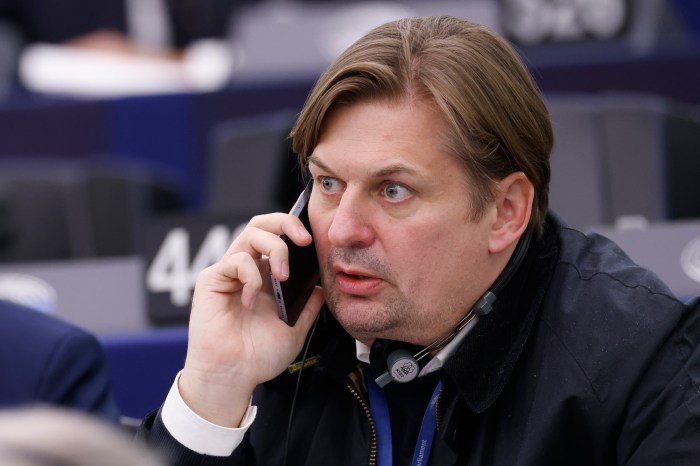By David Brunnstrom and Christine Kim
WASHINGTON/SEOUL (Reuters) – U.S. President Donald Trump on Thursday called potential talks between North and South Korea “a good thing” and agreed with South Korea there would be no joint military drills, which North Korea bitterly opposes, during next month’s Winter Olympics.
South Korea’s Presidential Blue House said Trump told South Korea’s President Moon Jae-in in a telephone call he hoped inter-Korean talks would lead to good results and that he would send a high-level delegation, including members of his family, to the Winter Olympics, which will be held in South Korea.
A senior U.S. administration official told Reuters there had been discussion about Trump’s daughter Ivanka attending the games in Pyeongchang.
The White House did not immediately respond to a request for comment on this but said Trump and Moon agreed “to de-conflict the Olympics and our military exercises” to ensure the security of the games and that a “high-level delegation” would attend.
At the same time, the two leaders also “agreed to continue the campaign of maximum pressure against North Korea,” it added.
U.S. Defense Secretary Jim Mattis told reporters the joint drills, which North Korea denounces as a prelude to invasion, would now take place sometime after the Olympics and Paralympics, which run from Feb. 9-25 and March 9-18. Mattis called their delay a “practical” matter.
Mattis said it was too early to say if North Korea’s offer to talk to South Korea was a genuine olive branch, but said it was clearly the result of international pressure.
In a tweet earlier, Trump, who hurled fresh insults at North Korean leader Kim Jong Un this week, took credit for any dialogue.
“Does anybody really believe that talks and dialogue would be going on between North and South Korea right now if I wasn’t firm, strong and willing to commit our total ‘might’ against the North,” Trump tweeted, adding that “talks are a good thing!”
Washington had earlier responded coolly to Kim’s suggestion of inter-Korean talks in a New Year’s Day message, with the State Department saying Pyongyang “might be trying to drive a wedge” between Washington and Seoul.
The head of U.S. forces in South Korea warned on Thursday against raising hopes over North Korea’s overture amid a war of words over Pyongyang’s development of nuclear-tipped missiles capable of hitting the United States.
Trump and North Korea’s Kim have exchanged bellicose comments in recent months, raising alarm across the world, with Trump at times dismissing the prospect of a diplomatic solution to a crisis in which both sides have threatened to destroy each other.
In his New Year address, Kim said he was open to dialogue with South Korea and could send a delegation to the Winter Olympics.
Kim also warned he would push ahead with “mass producing” nuclear warheads in defiance of U.N. sanctions and warned that the entire United States was in range of North Korean nuclear missiles and a nuclear button was always on his desk.
“LITTLE ROCKET MAN”
Trump responded by mocking Kim as “Little Rocket Man” and saying that his nuclear button was bigger and more powerful and worked.
Seoul answered the North Korean talks overture by proposing high-level talks at a border village next week and on Wednesday, the two Koreas reopened a border hotline that had been closed since February 2016.
The senior administration official said that despite Trump’s positive words, there was concern in the administration that South Korea could go too far in offering concessions to North Korea that could weaken the U.S. pressure campaign.
“I don’t think people view the talks as an unalloyed good, that under all circumstances North and South talking is a good thing,” the official said.
“I think we have seen in the past that sometimes the North exploits these talks, especially when you have a left-of-center president in South Korea whose base is encouraging him to make concessions that we probably would not be comfortable with.”
“So there’s a level of wariness about that.”
State Department spokeswoman Heather Nauert said she understood any talks would be limited to the Olympics and domestic issues and added that Washington and Seoul were in close contact.
“This is not something where (South Korea) is going to go off freelancing,” she said. “Could that meeting that could potentially happen … lead to something more in the future? Perhaps it could but I don’t want to speculate.”
On Tuesday, Nikki Haley, the U.S. ambassador to the United Nations, said Washington would not take any talks between North and South Korea seriously if they did not contribute to denuclearizing North Korea.
She also said Washington was hearing reports that Pyongyang might be preparing to fire another missile and warned of even tougher steps in response if it did so.
The commander of U.S. Forces Korea, General Vincent Brooks, said the North Korean overture was a strategy to divide five countries – the United States, South Korea, China, Japan and Russia – to reach its goal of being accepted as a “nuclear capable” nation, South Korea’s Yonhap news agency reported.
“We must keep our expectations at the appropriate level,” he was quoted as saying in an address to a university in Seoul,” he said, adding it was important for the United States and South Korea to maintain an “ironclad and razor-sharp” alliance.
The five countries Brooks mentioned were involved in years of on-again-off-again “six-party talks” with North Korea aimed at resolving the crisis, but eventually North Korea pulled out.
(Additional reporting by Kiyoshi Takenaka in Tokyo and David Brunnstrom, Susan Heavey, Phil Stewart and Matt Spetalnick in Washington; Editing by Susan Thomas, James Dalgleish and Lisa Shumaker)


















